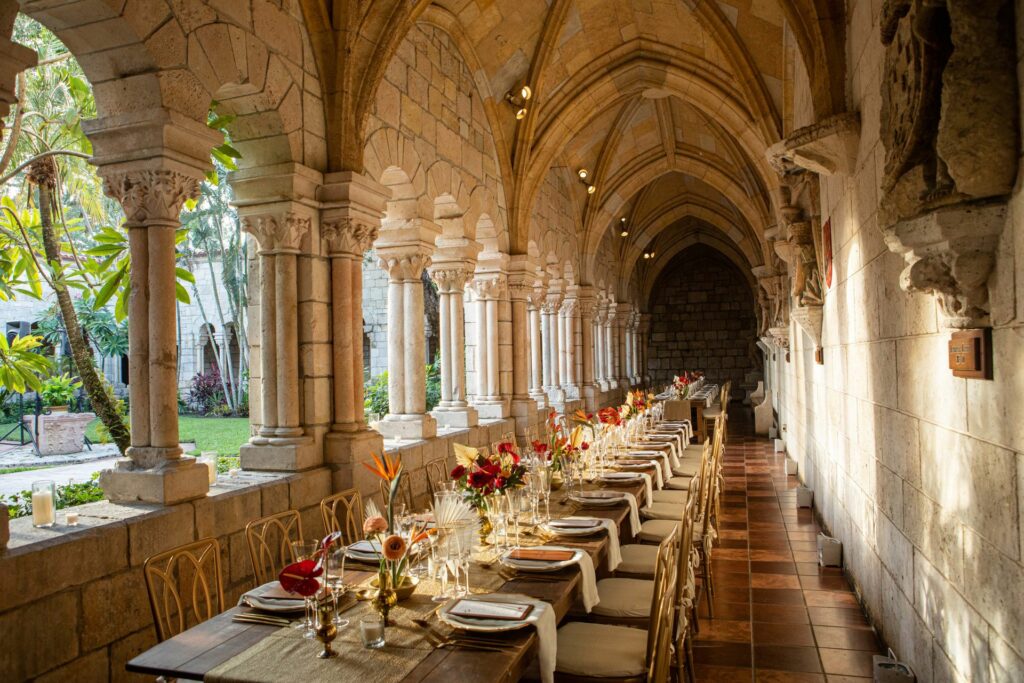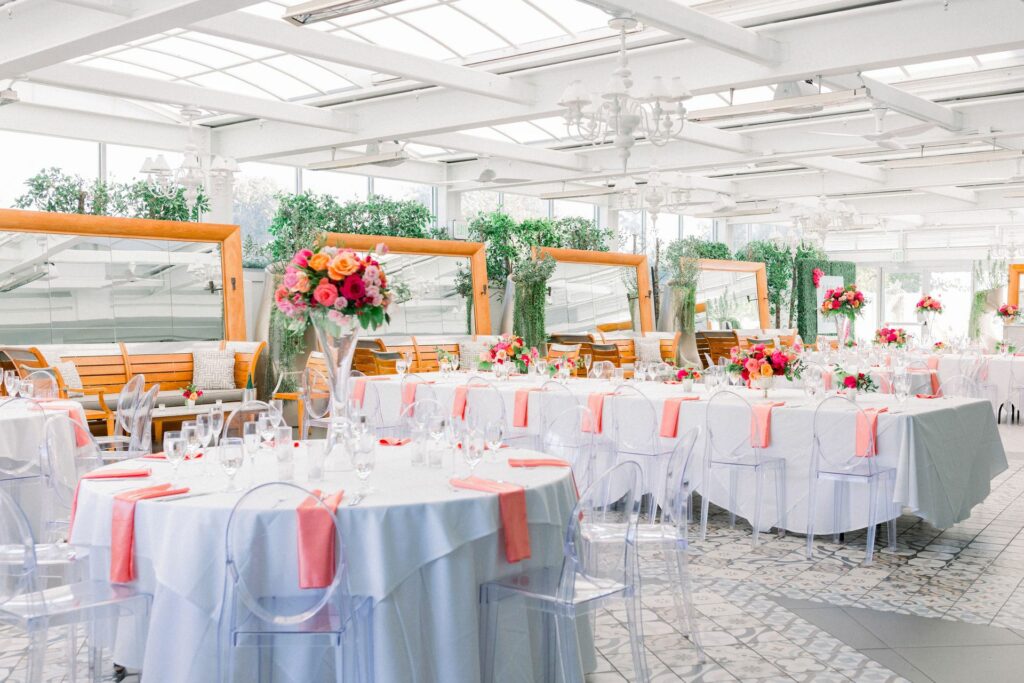
With the magnitude companies that had to close up shop for good or administer layoffs due to the economic effects of the COVID-19 pandemic, the events industry job market has faced a drastic transformation.
Event professionals—from experienced to novice—are venturing out into the gig economy landscape as freelancers, trying to develop “portfolio careers” through contracted jobs, consulting gigs, and short-term projects that are in need of their expertise. Thinking about going out on your own? Here’s our guide on how to become a freelance event planner.
As is the case with other industries and disciplines, an event freelancer (also referred to as independent contractors) offers their skills, expertise, and knowledge on a per-project basis. This can also apply to those with full-time gigs who have a side hustle. Typically, freelancers are self-motivated and seek creative freedom.
Freelance event planning assignments might include researching venues, liaising with venue management and staff, researching and recruiting speakers, booking entertainers, writing business and marketing plans, creating a timeline and budget outline, promoting events, prepping the venue, designing marketing collateral, coordinating event logistics, recruiting and training event volunteers, and collecting feedback from attendees after the event.
Whether you’re looking to earn supplemental income or were laid off from your full-time job and need to make ends meet, a freelance career offers several benefits including a flexible schedule—you decide if and when you take on a project.
“Sometimes this is easier said than done, but you always have the ability to say no to a project if it doesn’t fit within your values, aesthetic, and professional goals,” says creative director and event designer Kelly Bryden.
Plus, you can be location independent, meaning you’re not tied to a specific (sometimes caustic) office environment. This is one of the reasons creative director and designer Elyse Marks decided to pursue freelancing. “I became an event freelancer because, as a black woman, most offices are not safe spaces. I love the work I do, but the microaggressions and lack of support at work caused both mental and physical health issues.”
In addition to offering a better quality of life, freelancing can also help you up your overall game. “As a freelancer, it helps to broaden what you learn and your overall business network. Having the option to freelance for various organizations has taught me so much and has increased my personal value, something that you may not necessarily get by working for just one company long term,” explains Shantel Clarke, founder of Reservedx, a talent management agency that represents event producers and marketing freelancers.

You might be saying to yourself, “That all sounds great! Sign me up!” But there are some drawbacks and challenges to being a freelancer, especially on a full-time basis.
“Say goodbye to a steady paycheck every two weeks,” Bryden says. “Some months will be very busy and others will be bone dry. You need to learn how to manage your finances so you can be ready for the slow times.” Because you’re self-employed, you need to be prepared to handle the bumps in the road all on your own.
Carolina Martinez, a freelancer who specializes in event strategy, management, and production and digital marketing, agrees, saying that, “there is always financial stress when you don’t have a project in the pipeline. It is very important to stay connected, actively network, and plan ahead when it comes to finances. At times, we have to take on projects we don’t love, but it's important to remember that every opportunity is a learning experience and could lead to new connections and future projects.”
Plus, unlike a staff employee, you need to set up and pay for your own health benefits, which, as we all know, can be expensive. (You can sign up for a health insurance plan through the federal or state online marketplaces.) You also won’t get paid sick leave or guaranteed vacation time.
And while you may relish working from home, it can be isolating. “You no longer have coworkers to bounce ideas off of or a boss to help you win your battles,” Bryden says.
Also, you need to handle all of the financial aspects of running a business like accounting, billing, licensing, and contracts.
While you don’t necessarily need a specific degree or employment background to succeed within the industry, many event freelancers have developed valuable skill sets through positions within the food and beverage space, retail, PR, design, and more.
Here are some of the key skills you’ll need as a freelance event planner:

Unlike other professions, event planners aren’t required to earn a specific degree or certification. But schools do offer undergraduate and graduate degrees in event management, such as the M.S. program at the Jonathan M. Tisch Center for Hospitality and Tourism at New York University, as well as continuing education courses and certificate programs that allow both novice and seasoned event pros to hone their skills—or learn new ones, including virtual event planning.
If you’re ready to take the leap and pursue a freelance career, it’s advisable to establish a legit business, either as a sole proprietorship or a limited liability company (LLC). By doing this, you’ll be able to protect yourself from personal liability as well as utilize tax advantages.
If you’re freelancing on the side or only occasionally, a sole proprietorship is probably your best option. It allows you to operate under a title other than your first and last name, as well as open a business bank account. Full-time freelancers should consider an LLC because it protects your personal assets from debt or legal liabilities.
You’ll also need to obtain a business license. Requirements for this differ depending on the work you do and where you live.
Once you’ve set up your business bank account (that’s separate from your personal account), use it to receive payments from clients, then transfer a “salary” from there into your personal account—just like you’re paying an employee. From there you can also divvy up funds into separate accounts for tax payments, retirement savings, and emergency money. You should also track your business expenses (which you may need to bill to clients) and save all receipts. Bryden recommends using Quickbooks or Lunafi.
So, maybe the most important question, what should you charge? Well, it depends. Typically, freelancers are paid based on an hourly rate or a flat fee for a project. Consider your skill level, expertise, and experience, as well as the scope of the assignment, when determining your rate. Also, you’ll need to take into account taxes, health insurance, travel, and any other potential overhead costs. For example, if you made $25 per hour working full-time, you’ll want to tack on extra $ for items that your employer may have been covering for you such as benefits.
“Overall, my rate depends on the overall scope of work and the duration of the project. I also take into account my client’s budgets, refer to past projects, and at times consult with close friends in the industry to discuss what they are seeing in the market,” Martinez explains.
Here are some rates (on average) for common freelance event industry professions:
* rates also depend on location.
If you're a freelance event planner, you might also be able to charge a percentage of the overall event budget, typically 15 to 20 percent. And if it’s an ongoing project that may span months or longer, ask for a deposit upfront so you’re not waiting until the work or event is done to get paid.
These types of conditions can be included in the contract, which should also state the scope of work to be completed, deliverables, and deadlines, along with how you’ll be paid, when you’ll be paid, and what the penalty is for late payments (yes, you might be able to charge interest if the deposit doesn’t drop on time). Use sites like Docracy to find open-source contracts that can be tweaked based on the project.
Also, remember to give yourself a raise. “Be brave and promote yourself,” Clarke says. “This was an area I struggled with for a very long time as I didn't do it enough. There is a way to do it without offending your agency clients or brands that you work with.”
In addition to searching job portals, you’ll want to grow and nurture your network. Build relationships with vendors such as photographers, caterers, and others. Consider connecting with local businesses to stage events for promotional photo shoots in order to show off your sense of design. You might also offer your services free of charge to a charitable organization for a fundraising event. Reach out to other event planners for advice and possible job leads. And be sure to spread the word by handing out business cards, creating a website, posting on social media, and setting up a profile on The Vendry.

“Self-employment tax as an independent contractor is real and can really get you!,” cautions freelance producer Mai-Lan Pham, who advises freelancers to hire an accountant if possible. Since you don’t want Uncle Sam knocking on your door, demanding his money, you’ll need to file quarterly estimated income taxes, which include funds toward Social Security and Medicare.
The good news is you can write off business-related expenses like gas and parking fees, travel costs, your computer or other equipment, and professional development courses or certifications. You can also deduct the cost of freelance employees (if you hire any), business loan interest, rent or mortgage interest that’s related to your home office, and even possibly health insurance and unpaid invoices. Just remember to keep records of these expenses for IRS purposes.
First, set up an online presence that includes an official website showcasing your work and case studies, along with social media accounts. And remember to use hashtags when posting in order to attract potential employers. “I have hired multiple muralists by just looking at #NYCmuralist on Instagram,” Bryden says.
Before posting to social, though, make sure you’re clear on the rules (which can be outlined in the work agreement), Clarke explains. “For example, if you are working for an agency, is the rule of thumb once the project is complete to only tag the agency and not the brand client? Is there a specific hashtag that you should use? I know these details may seem small but they matter and it's best to get clarity before the project officially begins.”
Pham says that a freelancer needs to build “a portfolio for yourself that can be easily shared. When I see pictures from a cool project, my first question is always, ‘who produced this?!’ My second question is, ‘who built this?!’” You also might want to invest in business cards with your website and handles (low-cost services like VistaPrint offer affordable options) that you can hand out at IRL networking events in the future.
Martinez also suggests attending industry networking events, connecting with industry professionals on LinkedIn, joining networks like The Vendry, asking your network and circle of friends to recommend you to their networks, and following brands and agencies that align with your interests, experience, and values.
Clarke emphasizes the need for freelancers to update their LinkedIn profiles, including asking your close network to endorse your skills, posting thought leadership pieces with open-ended questions for engagement, and commenting under your networks’ posts—“essentially build your community.”
“I find that word of mouth and networking are the most fruitful methods of seeking out new business,” Pham adds. “Building up a reputation for a high quality of work and being a great producer to work with is the best way to continue to find new projects. ... I've also found that my vendors and partners are great to network with. They work with more agencies than one and can help connect you to teams you haven't worked with before.”
Bryden also recommends joining Facebook groups for freelancers such as Freelancing Females as a resource for work opportunities. Other job boards to check out include The EventWork, Upwork, Freelancer.com, Guru, and Working Not Working.
And expect to be doing “a lot of cold pitching” as you seek out work, Bryden says. So make sure you’re prepared when the time comes to win over a new client. As Clarke notes, “you might get the attention of the agency or brand you've been drooling over, however you might not have it for long so it's important to be on point. Being a freelancer can be rewarding but it will get more and more competitive as time goes by.”
“I think there will be an even stronger need for freelancers as it will be the cost-efficient solution until companies are able to get back to where they once were with full-time staff—should that be a future goal,” Clarke says. “The cost of having full-time staff and paying salaries when there isn't any active business on the table will be too risky. There is so much value that hiring someone on a project-to-project basis has to offer, which can also be exciting news for those that have recently been laid off or furloughed as an alternate work option.”
Liron David, founder and executive producer of New York-based event planning & production firm Eventique, says that because the industry is largely focused on virtual productions right now, “we are seeing a demand for technicians, particularly in-home recordings and streaming, and video editors to clean up home recordings in post-production. Graphic designers, particularly those who have experience with live streams and webinars and who know the formats of registration pages, are keeping quite busy these days.”
Martinez is one of those freelancers who has shifted her attention toward virtual events. “Currently, I am educating one of my non-profit clients on virtual experiences and proposing a calendar of virtual events to continue generating awareness, fundraising, and potentially replacing in-person events for the remainder of the year. There are still so many unknowns, regulations change on a daily basis, so I think it is best to have a Plan B until this pandemic is under control and it becomes safe again to have social events without any repercussions.”
As we mentioned at the top, freelancers often feel the effects of an economic downturn, such as the current climate, more acutely than full-time staffers. But fortunately they’re also able to think quick on their feet. “COVID has put so many of us out of work and ‘pivoting’ to make ourselves relevant in other industries,” Bryden says. “I have started to work with clients on branding and logo design. … I love working with new clients and on new projects so it has been fun but I miss designing spaces.”
Marks echoes that sentiment, saying that “for a freelance creative like me, who specializes in spaces, there is little to no work right now. But now I have time to learn some new skills and come out of this as a more robust freelancer.”
“I have used this time to start brainstorming new builds for events in the future that involve excitement and less germy build-up,” Bryden adds. “I also have been broadening my network to include environmental event consultants. I can’t wait to partner with some of them so they are making sure that all event materials can be disposed of, recycled, and reused correctly.”
“The positive spin that we can put on this is that, yes, digital marketing is getting some more love, which it should because it's hard and it's definitely not something that is easy to ‘pivot’ to,” Pham says. “And yes, this time will spark some truly amazing, above and beyond, thought-provoking creative. You really can do your job well as a creative if you can navigate through a pandemic. And yes, I also fully acknowledge that this is the ‘relaxing break’ that we've all asked for during that super hard project, and I've definitely enjoyed the time to take CAD classes, catch up on reading, etc., but I am also definitely ready to be back on-site and asking to drive a forklift.”
To be a successful freelancer in today’s market, Eric Wielander, director of strategy and communications at Eventique, says that “patience is key. The virtual space is new to many clients, and they need the right attention and guidance through every step of the process, from recording at home to determining the best run-of-show to understanding what options exist for them. And because you're dealing with so many different personalities, being flexible is also paramount.”
Fortunately, event freelancers, thanks to their innate flexibility and ability to adapt, are in a unique position to thrive within this ever-changing and evolving industry.
Whether you’re a recent college graduate or looking to make a career change, gaining experience with an already established event planner, agency, or a company’s in-house event department will make the transition to freelance work go more smoothly. It will also help you start building a network of industry contacts.
Very few event pros land that big large-scale gig right out of the gate. Instead, start small within your local area. Consider offering your services to charities or plan your friend’s birthday party. It allows you to build up your work experience and showcase your skills. Plus, you’ll be able to add to your portfolio, which will help you work your way up to more complex events.
As a freelancer, the more connections you have, the more work opps will pop up. To start building and maintaining your network, attend industry events and join professional organizations. Connect with event pros on social media via hashtags. Engage in discussion forums on LinkedIn and The Vendry. Establishing relationships with fellow event planners can potentially lead to referrals.
Because many events take place during the evening or on weekends, especially social events like weddings, as a freelance event planner, you may need to cancel your weekend or vacation plans due to a sudden gig. So be prepared to make those types of sacrifices.
Since one of the downsides of freelancing can be a lack of job security (and erratic pay schedules), you’ll need to think ahead, checking for opportunities and contacting people on a regular basis. Plus, you’ll want to plan out your finances, including an emergency fund, and create a personal budget. During the first months of your freelance career, up until you’ve established a solid client base, you might not earn much (or anything) and your income could vary significantly, so make sure you’re financially stable before taking the leap into the freelance world.